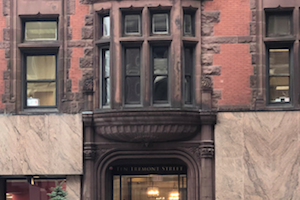For a Free Consultation
Massachusetts G.L. c. 272 § 53(b): Disorderly Persons
Massachusetts General Laws chapter 272 section 53 governs misdemeanor offenses, specifically section 53(b) pertains to disorderly persons and disturbing the peace.
The crime of being a disorderly person is defined as: engaging in fighting or threatening, violent or tumultuous behavior, or creating a hazardous or offensive condition that serves no legitimate purpose.
In order to be convicted as a disorderly person, the Commonwealth must prove that:
- The Defendant engaged in this behavior as proscribed by the statute;
- The Defendant’s actions were reasonably likely to affect the public, and
- The Defendant engaged in this behavior and intended to cause a public inconvenience, annoyance or alarm OR recklessly created the risk of public inconvenience annoyance or alarm.
Similarly, the crime of disturbing the peace is defined as: conduct which most people would find to be unreasonably disruptive, such as making loud or disturbing noise, fighting, provoking violence, tumultuous or offensive conduct.
In order to be convicted of the offense of disturbing the peace, the Commonwealth must prove that:
- The Defendant engaged in the conduct as proscribed by the statute;
- The Defendant engaged in such conduct intentionally and not by accident or mistake; and
- The Defendant’s actions did in fact annoy or disturb at least one person.
Penalties:
The potential punishments for the first offense of disorderly conduct or disturbing the peace as provided by G.L. c. 272 section 53 is a maximum fine of $150. For a second offense under this statute the potential penalty is a jail or house of correction sentence for not more then six months or a fine of up to $200 or both a fine and term of imprisonment.
Pursuant to recent legislative amendments under the 2018 Criminal Justice Reform Act these charges have been decriminalized for juvenile offenders. This legislation provides that elementary or secondary school students shall not be adjudicated delinquent for charges under this section that arose from conduct within school buildings, on school grounds or at school related events. Juveniles may still be charged criminally under this section for prohibited conduct that occurs outside of school functions.
Contact an experienced criminal law attorney to receive the best possible disposition for even minor criminal offenses.
Massachusetts Criminal Law Attorney 617-263-6800If you or someone you know has been charged with being a disorderly person or disturbing the peace, contact the Law Offices of Stephen Neyman, P.C. Attorney Neyman is a fierce advocate who will fight to protect your rights and help you achieve the best possible outcome for your case. Because he understands that facing any criminal charge can cause anxiety and distress, he readily makes himself available to answer questions and address concerns. Call Attorney Neyman’s office at 617-263-6800 or send him an e-mail today. You can reach his office at any time of day or night, so do not hesitate.
 Law Offices of Stephen Neyman Criminal Lawyers Home
Law Offices of Stephen Neyman Criminal Lawyers Home










